Israel protests – news: Far-right groups attack Arabs at pro-Netanyahu march
Protests still raged after Netanyahu’s judicial overhaul postponed
Your support helps us to tell the story
From reproductive rights to climate change to Big Tech, The Independent is on the ground when the story is developing. Whether it's investigating the financials of Elon Musk's pro-Trump PAC or producing our latest documentary, 'The A Word', which shines a light on the American women fighting for reproductive rights, we know how important it is to parse out the facts from the messaging.
At such a critical moment in US history, we need reporters on the ground. Your donation allows us to keep sending journalists to speak to both sides of the story.
The Independent is trusted by Americans across the entire political spectrum. And unlike many other quality news outlets, we choose not to lock Americans out of our reporting and analysis with paywalls. We believe quality journalism should be available to everyone, paid for by those who can afford it.
Your support makes all the difference.Three arrests were made after far-right groups attacked Arabs during pro-government protests in Israel, as Benjamin Netanyahu delayed an incendiary power grab which would see politicians given a greater say in the courts.
Police said dozens of members of the extremist right-wing La Familia group were filmed attacking several Arabs in Jerusalem, in one case “savagely” beating a taxi driver and causing damage to his car.
Monday night saw clashes between opposing groups of protesters, who were out in their thousands on the streets of Israel’s major cities for a second night despite the prime minister’s attempt to diffuse the anger over his proposed judicial reform.
Mr Netanyahu in a prime-time speech on Monday night acknowledged the divisions roiling the nation and announced a monthlong delay for the legislation, saying he wanted “to avoid civil war” and seek a compromise with political opponents.
Opposition parties have started building teams to negotiate an alternative to the ruling right-wing coalition’s reforms, which would give Mr Netanyahu, who is on trial on corruption charges, and his allies the final say in appointing the nation’s judges, among other measures which critics say will weaken Israel’s system of checks and balances.
What effect could the judicial overview have outside Israel?
While the battle may seem like an internal Israeli matter, its outcome could have important repercussions for the region and beyond.
Netanyahu’s coalition allies are dominated by religious and nationalist hardliners who oppose Palestinian statehood and have close ties to the West Bank settlement movement. A weaker court system could clear the way for more aggressive settlement construction and even annexation of West Bank lands.
That could lead to further friction with the Palestinians, who seek the Israeli-occupied West Bank as part of a future independent state, as well as with Israel’s Western allies, who have voiced concerns about the overhaul and criticized the comments of some of his partners.
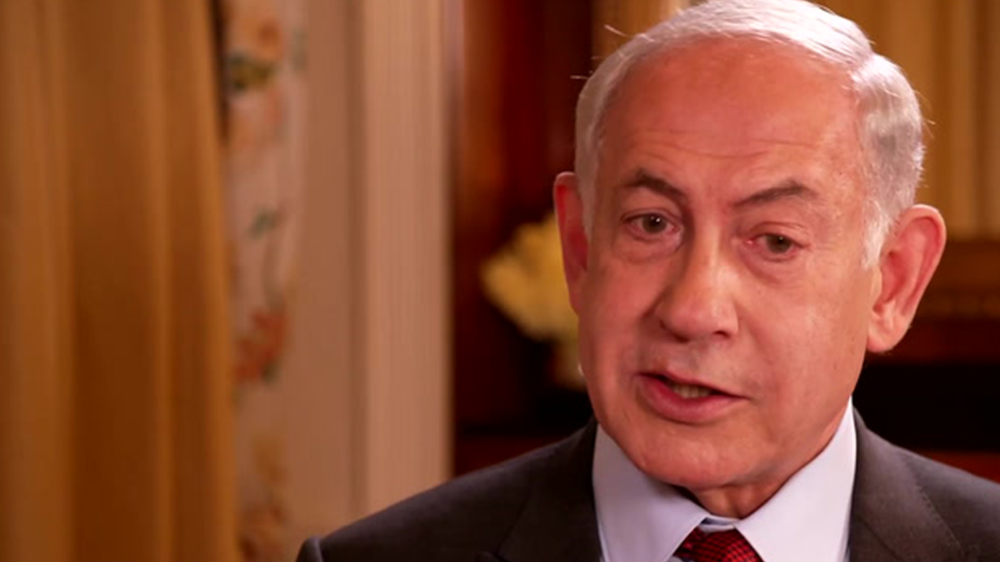
Israeli soldiers could also be more susceptible to war crimes prosecution in the Hague. One of Israel’s key defences has been that it has an independent judiciary capable of investigating and prosecuting wrongdoing by troops. A weakened judiciary could rob Israel of that defence.
Israel’s high-tech industry, the engine of the country’s economy, could also be affected. International agencies have already said they might lower Israel’s debt rating if the overhaul passes since the agencies consider a strong judiciary crucial to ensuring a good business climate.
A lower rating could make investors hesitant to do business in Israel and potentially lead companies with operations in Israel, including the world’s leading tech giants, to scale back their presence.
Israel protests: Where do we go from here?
The pause Netanyahu declared could help ease the tensions and buy him some time to find a compromise. But it also runs the risk of angering his far-right coalition partners — potentially threatening the stability of his government and risking the possibility of new elections. Any new election would once again likely focus again on Netanyahu’s suitability to govern while he faces serious legal problems.
What was the significance of the general strike?
Israel’s largest trade union is one of the most powerful institutions in the country, representing nearly 800,000 people across sectors that include health care, banking, government services, day-care and transportation. While the union has crippled parts of the economy in past labour disputes over the years, never before has it gone on strike to protest a political matter.
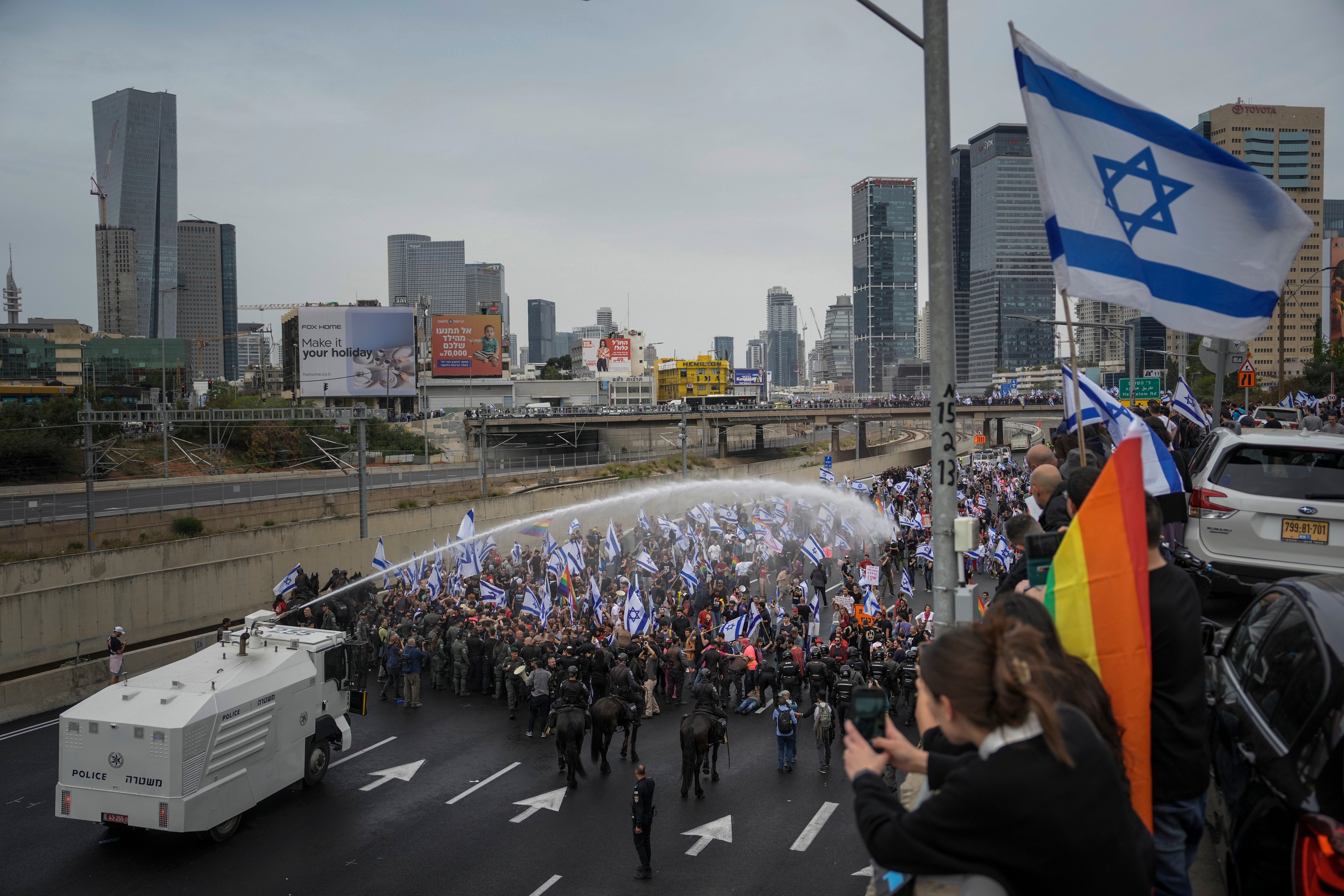
The decision was felt almost immediately. Israel’s main international airport cancelled all outgoing flights, stranding more than 70,000 travelers. Doctors and day care workers said they would stay off the job, and others were expected to join as well. The economy already has been hit by the protests, with the shekel currency tumbling in value in recent weeks. A protracted strike could have meant longer-lasting and deeper damage.
ICYMI: Israel protests in pictures
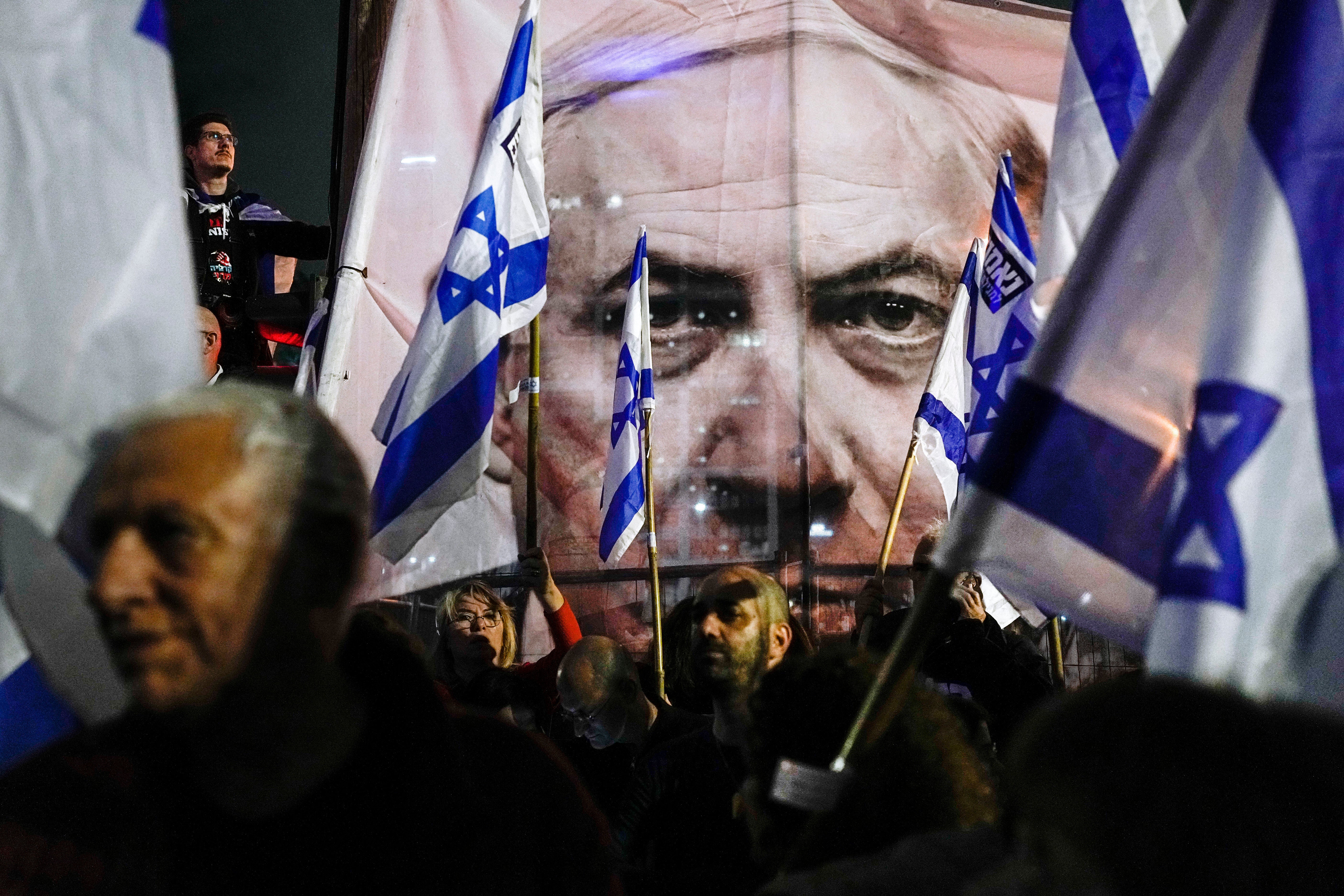
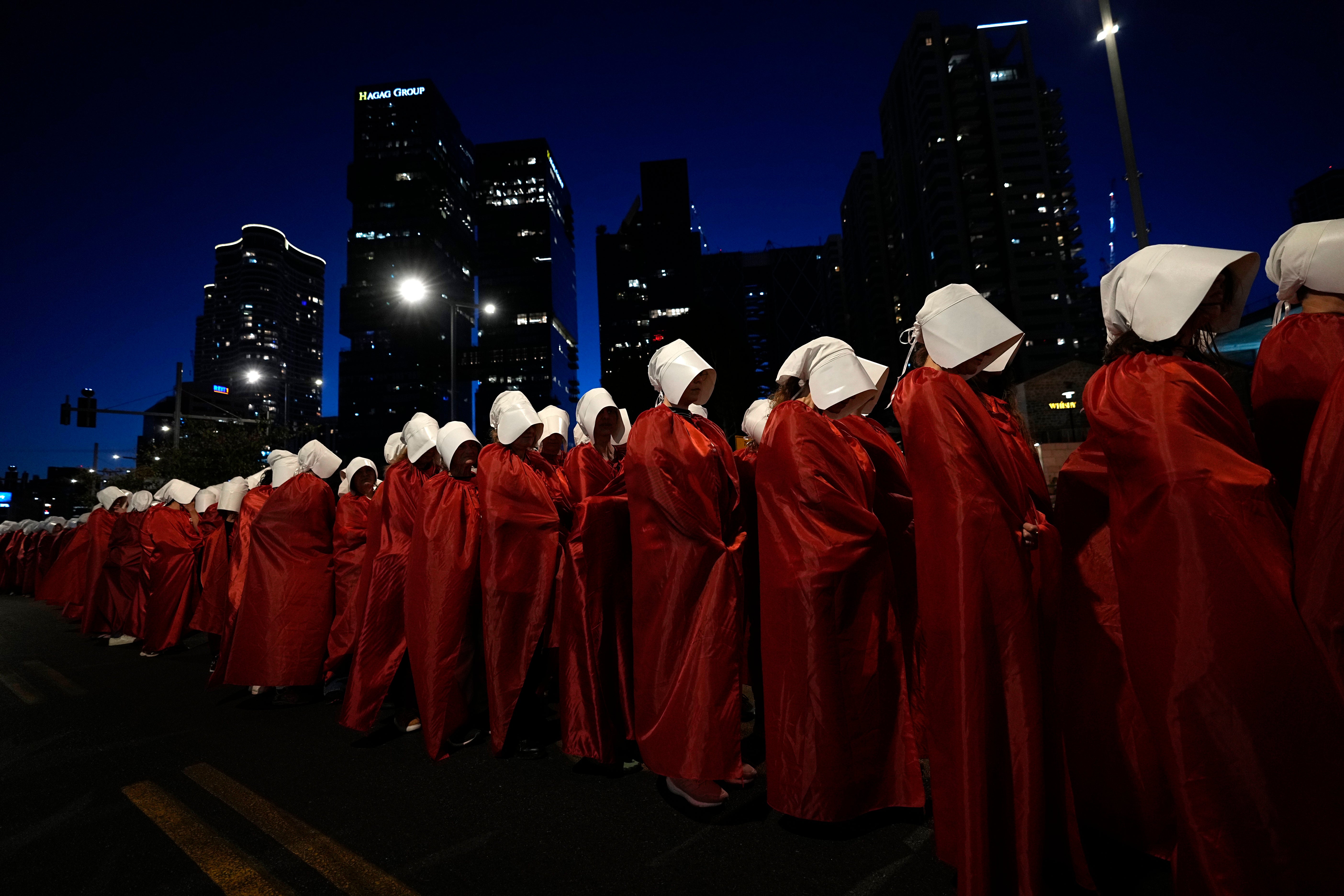
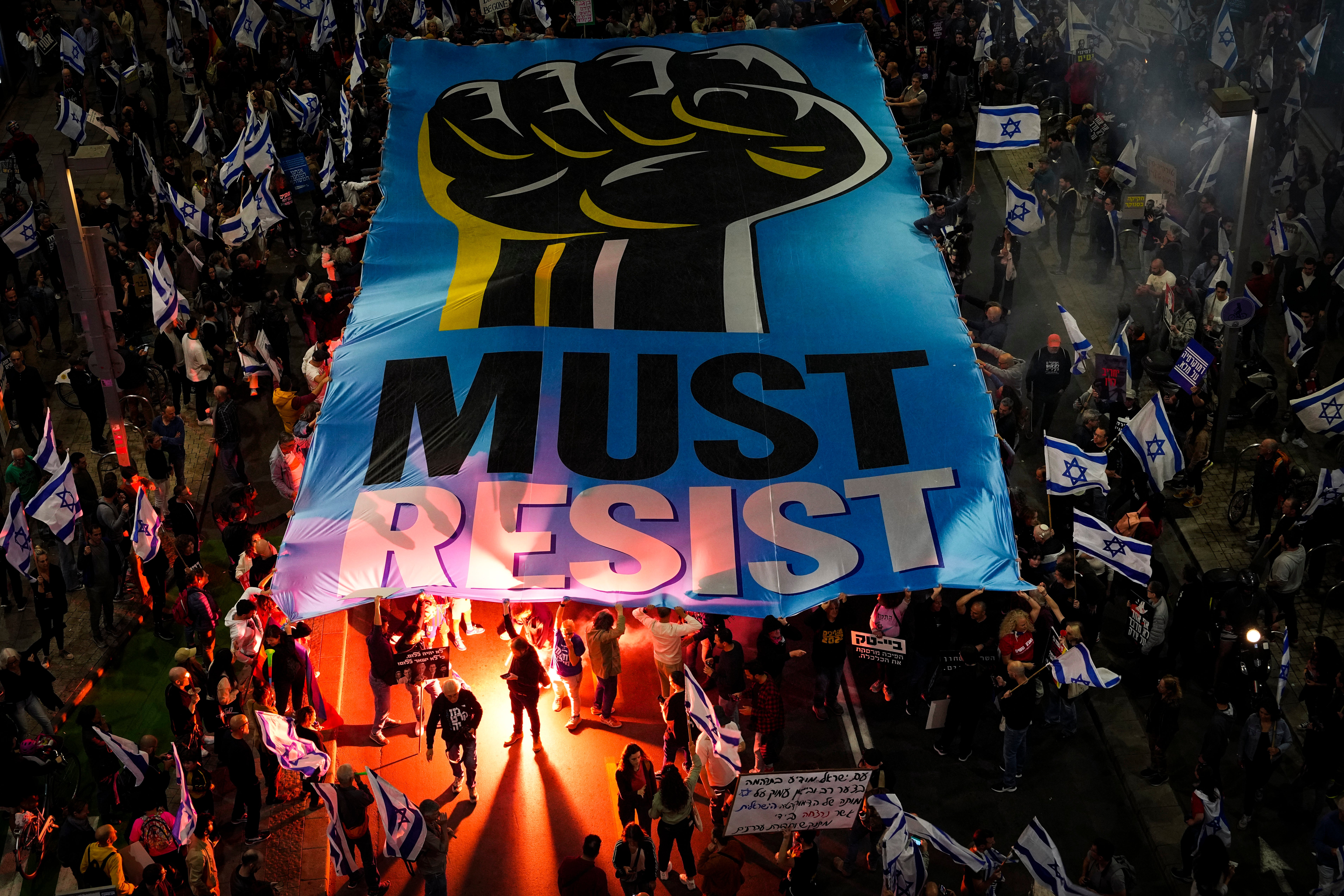
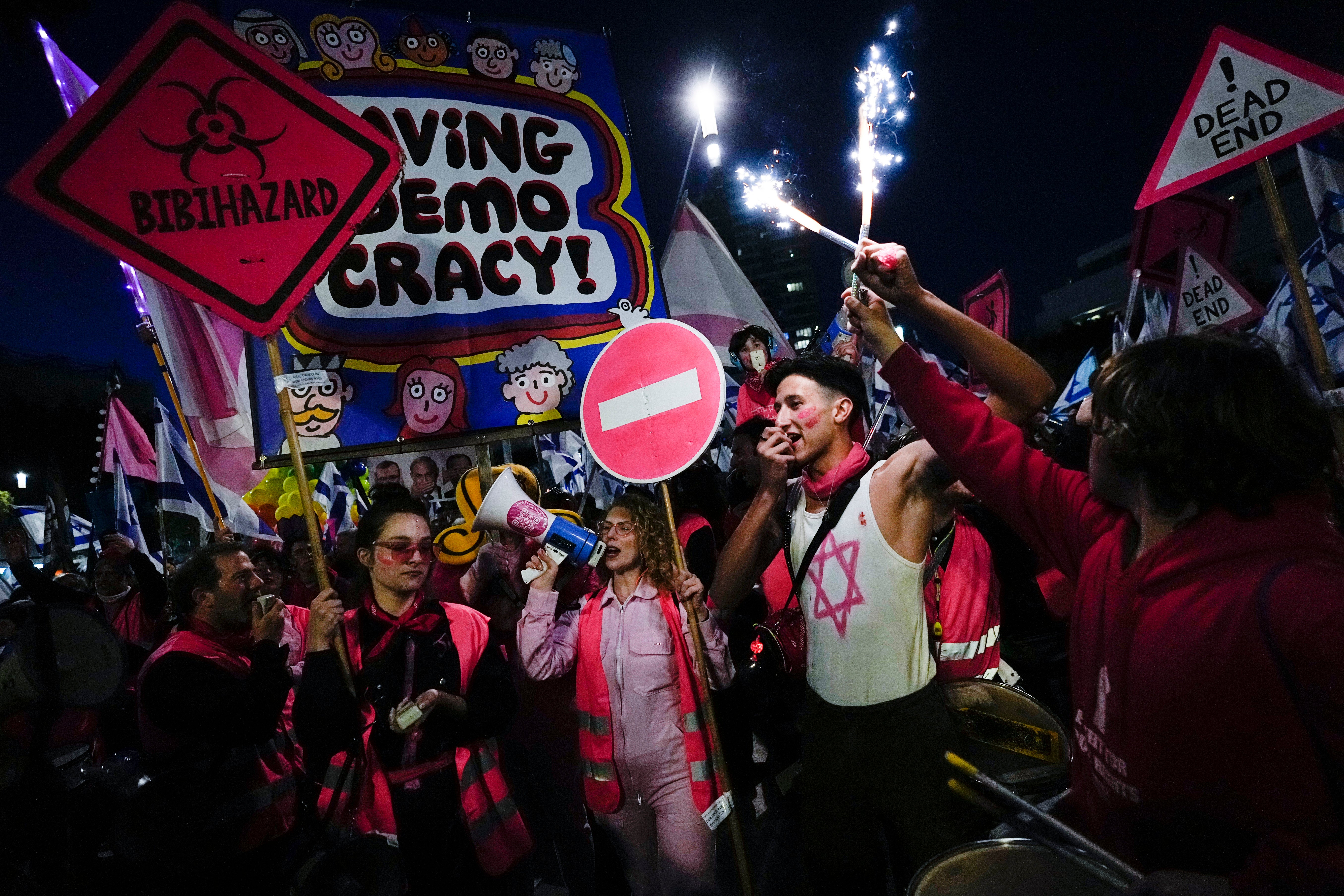
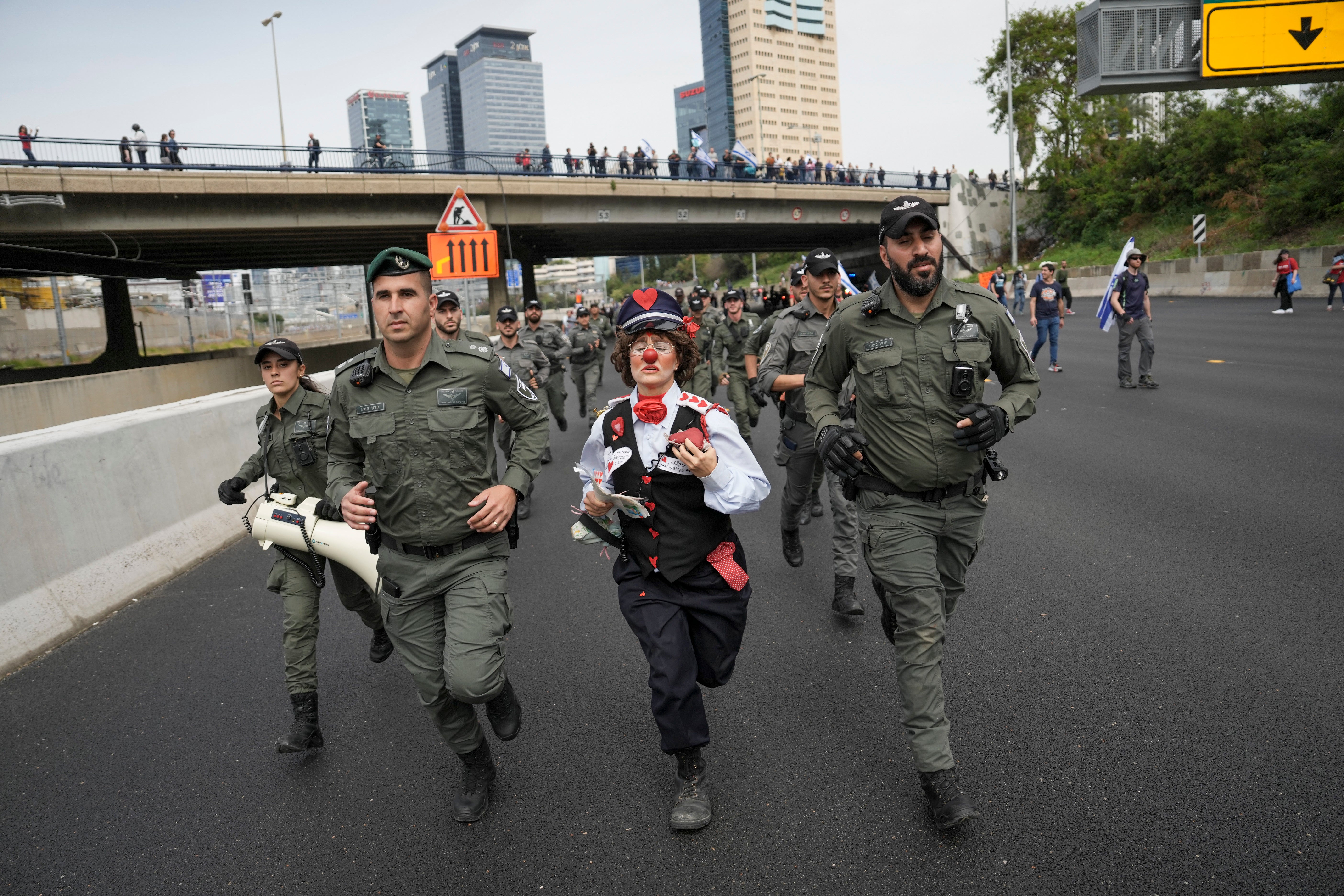
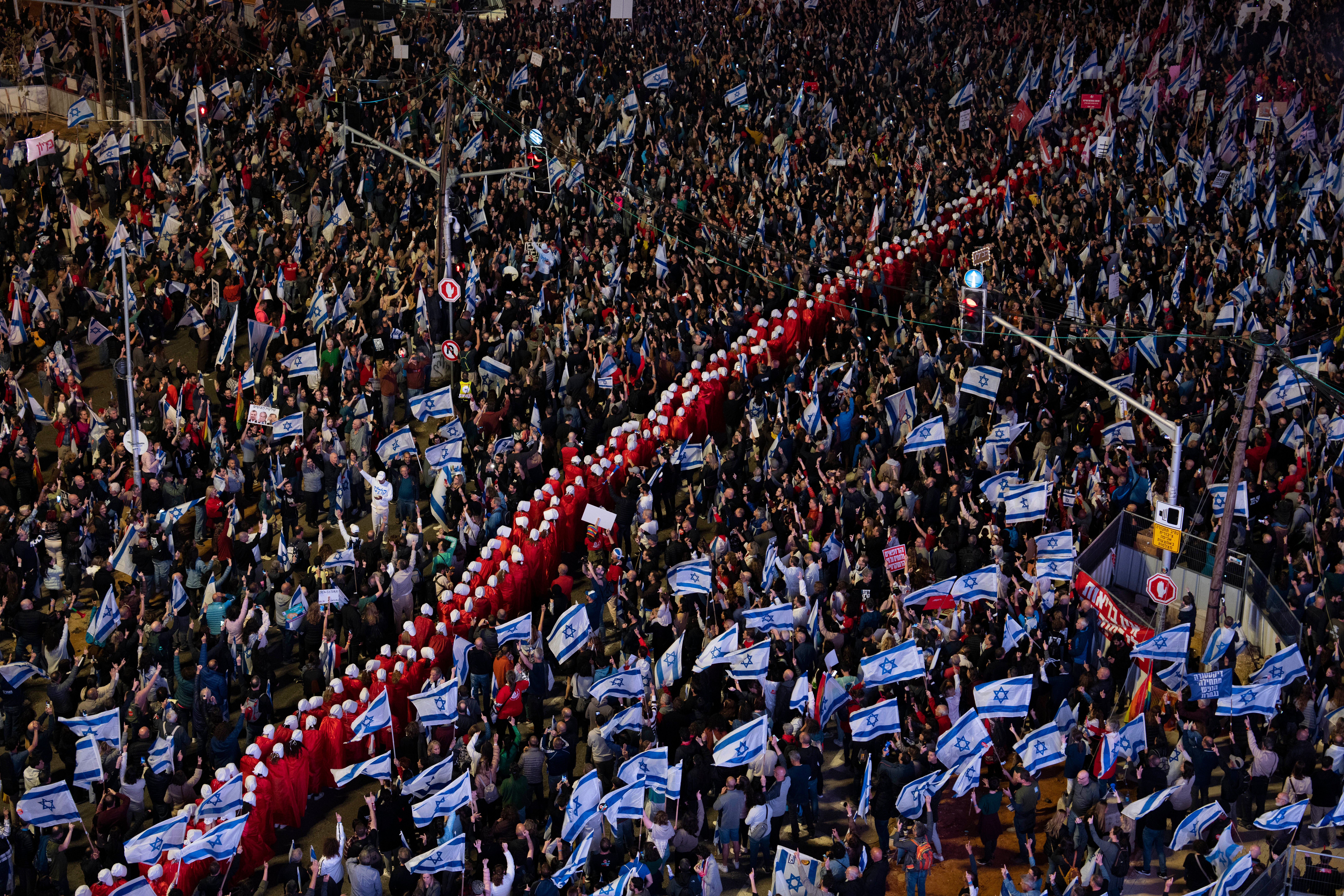
What fuelled the latest protests?
Israel has experienced nearly three months of mass protests since Netanyahu’s confidant, Justice Minister Yariv Levin, unveiled the overhaul in January. But the eruption of anger over Defense Minister Yoav Gallant’s dismissal, organized quickly largely via the WhatsApp messaging app, was startling. In roughly one hour, tens of thousands of people blocked Tel Aviv’s main highway, and thousands more demonstrated outside Netanyahu’s Jerusalem home.
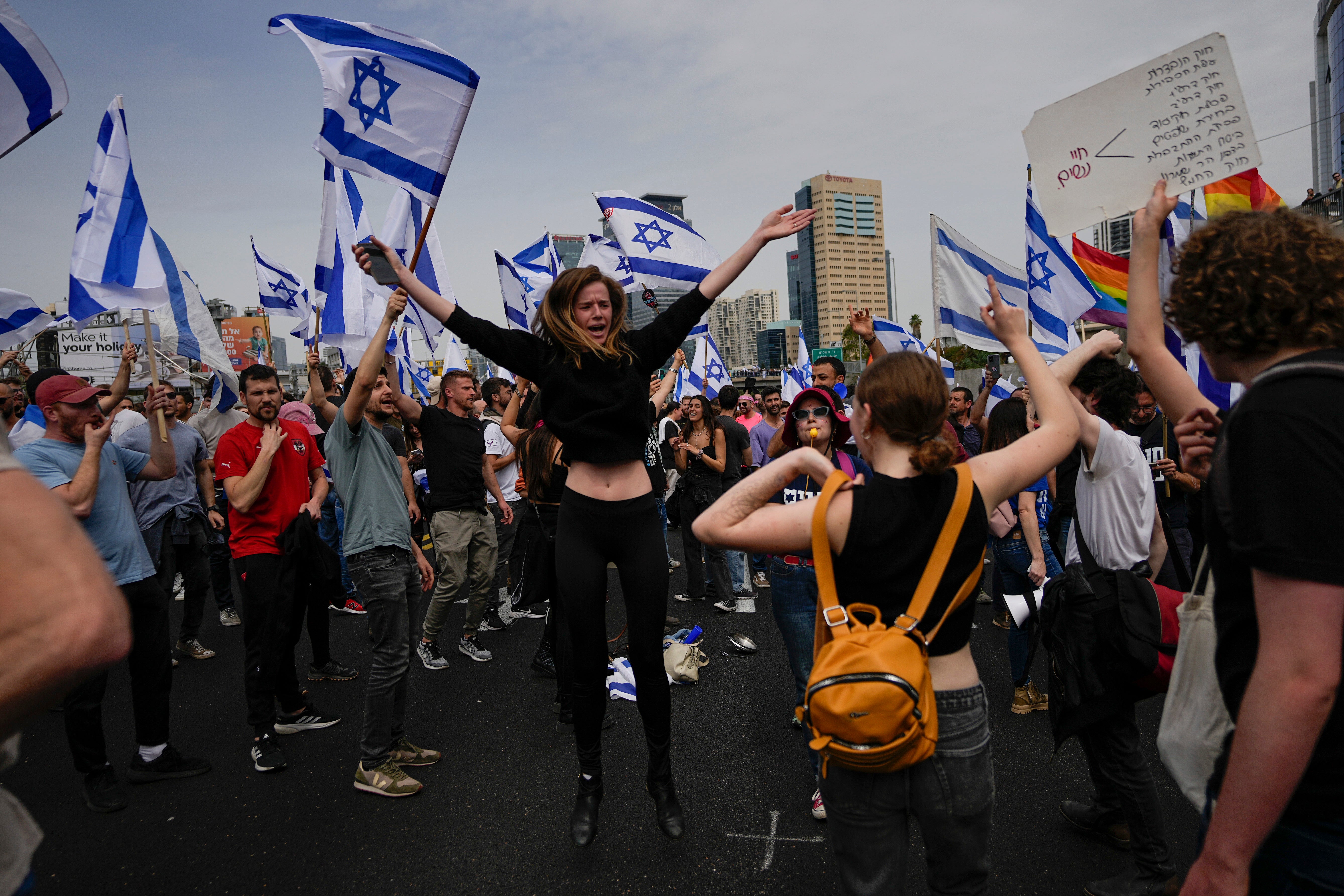
Gallant was the first Cabinet minister to break ranks and publicly call for a delay in the overhaul. With morale down and soldiers threatening not to report for duty, Gallant said that pushing ahead could hurt Israel’s military readiness. In security-obsessed Israel, Gallant, a gruff retired general, is among the most respected members of the new Cabinet. By attacking the man responsible for national security, Netanyahu may have crossed a red line — and unwittingly united this deeply polarized country by touching upon national security, one of the few areas of consensus.
What are the judicial reforms?
Prime Minister Benjamin Netanyahu’s proposed judicial overhaul unleashed the most intense social unrest in Israel in decades before he announced that he would delay the plan.
The changes would give the governing coalition control over judicial appointments and weaken the country’s Supreme Court by granting parliament the authority to overturn its decisions and limiting judicial review of laws.
Opponents say the overhaul would upend the country’s delicate system of checks and balances by giving Netanyahu’s ruling coalition control over what is now an independent judiciary. They also say Netanyahu has a deep conflict of interest in trying to reshape the legal system while on trial. The government says the legal changes are necessary to streamline governance in the face of an interventionist judiciary.
Tel Aviv police use stun grenades to disperse protestors, according to reports
Police are using stun grenades to dissuade anti-government protesters from breaching barriers to reach the Ayalon Highway in Tel Aviv, according to The Times of Israel.
Police officers are also trying to disperse right-wing protesters blocking Menachem Begin Boulevard in Jerusalem, who are protesting against the juducial overhaul reforms being delayed.
Footage shows protesters setting a fire on the road and adding items like car tires.
Police in Tel Aviv use water cannon against demonstrators
Police in Tel Aviv have used a water cannon against demonstrators who have taken to the streets again, despite a promise from the Prime Minister to pause his controversial judiciary reforms.
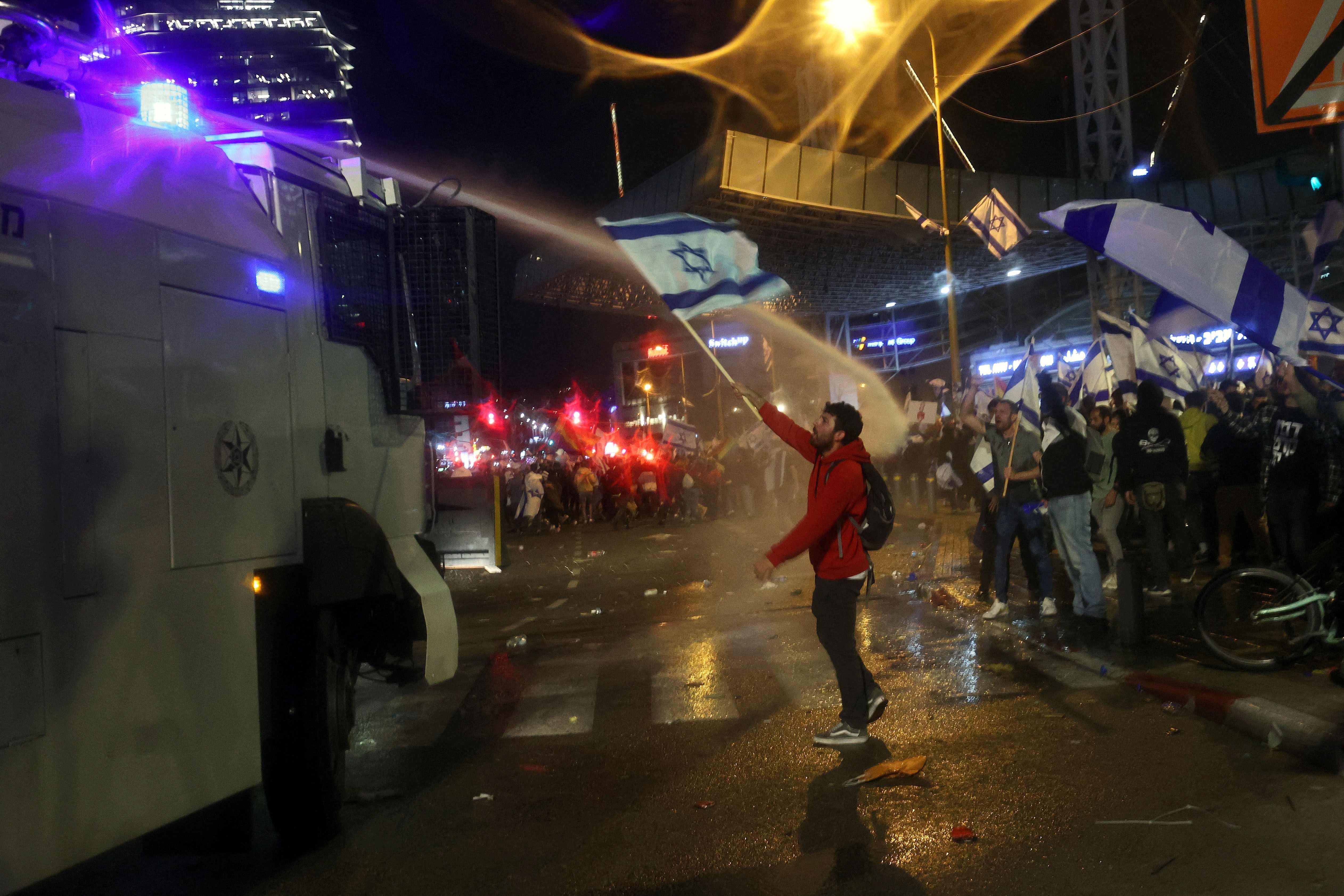
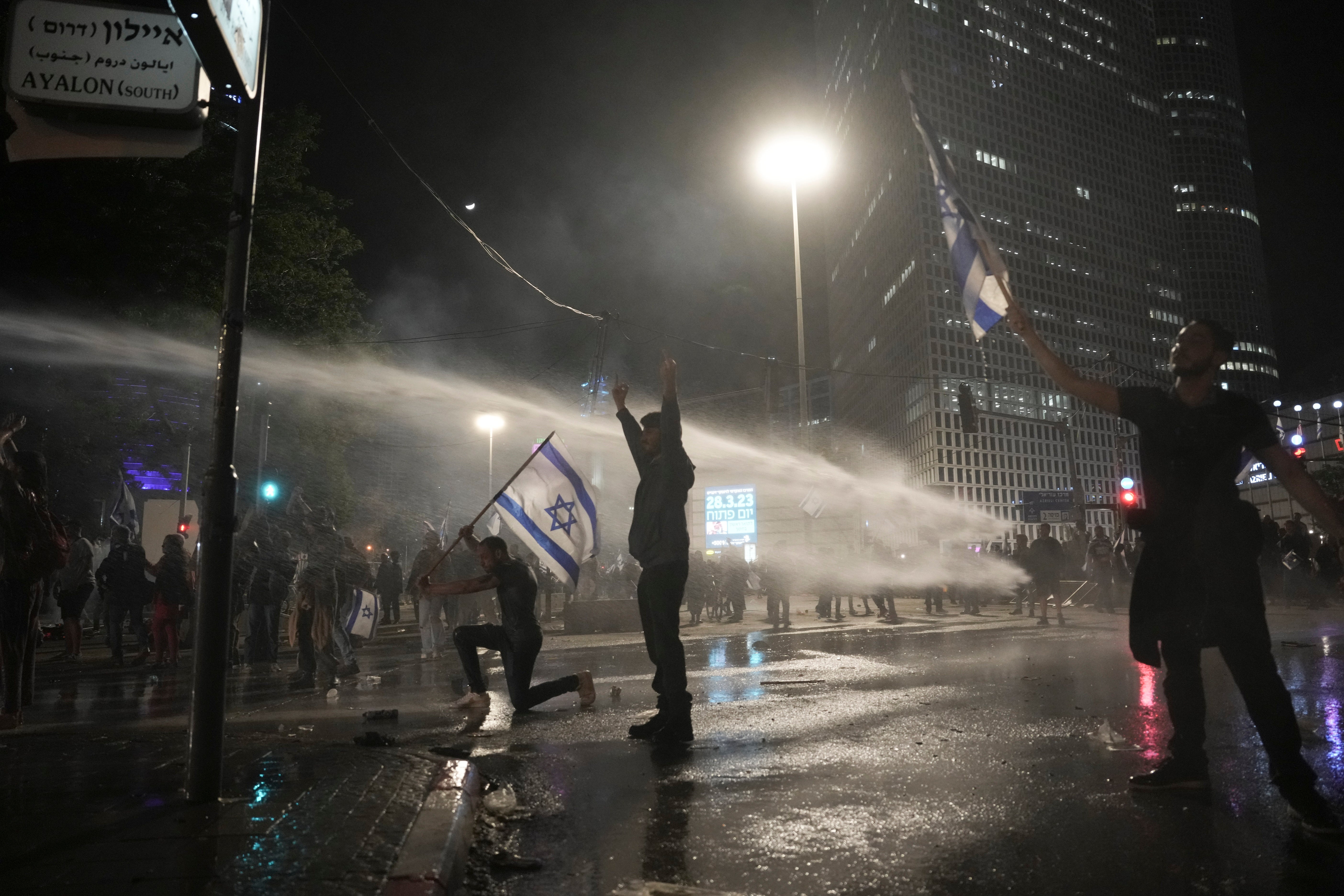
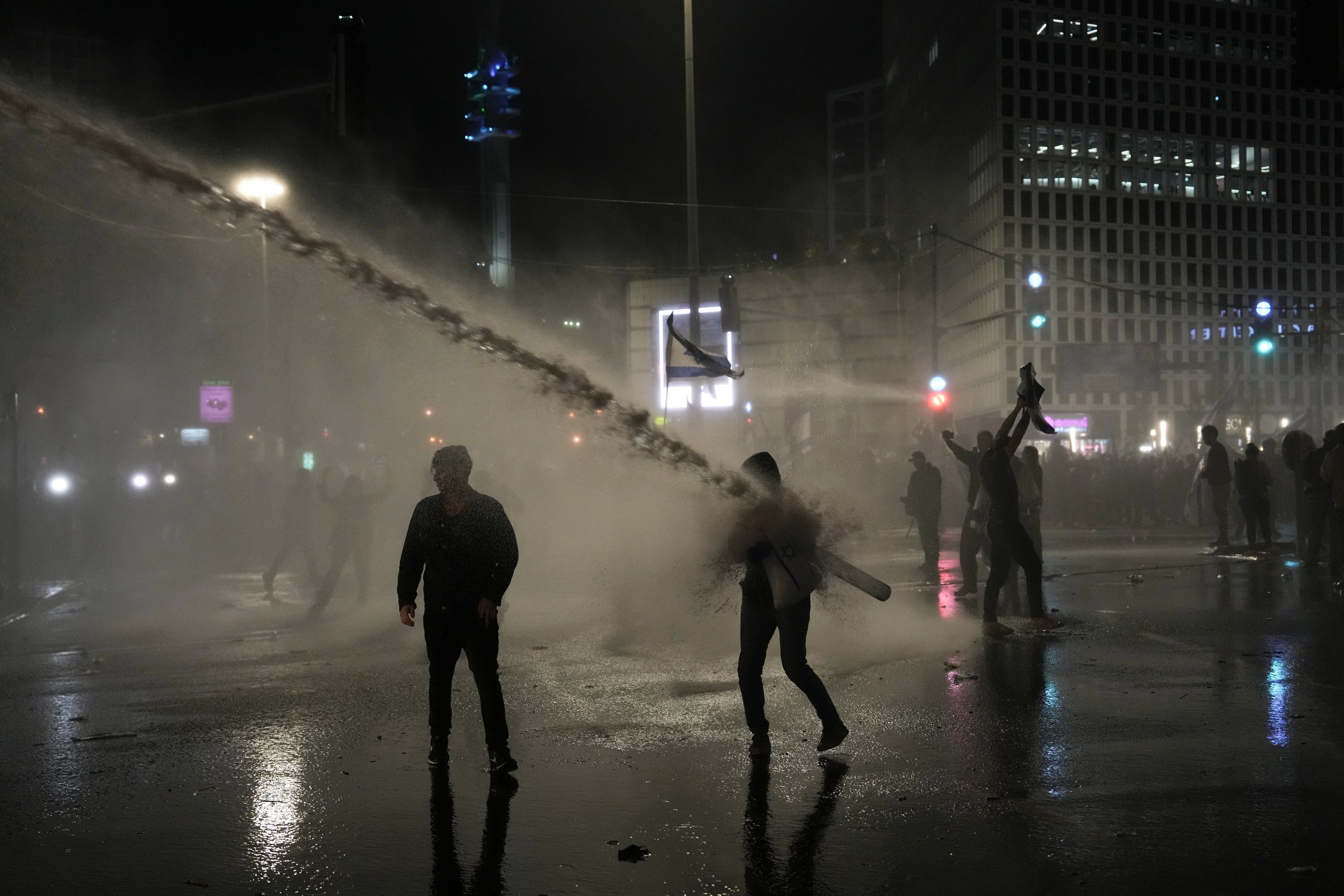
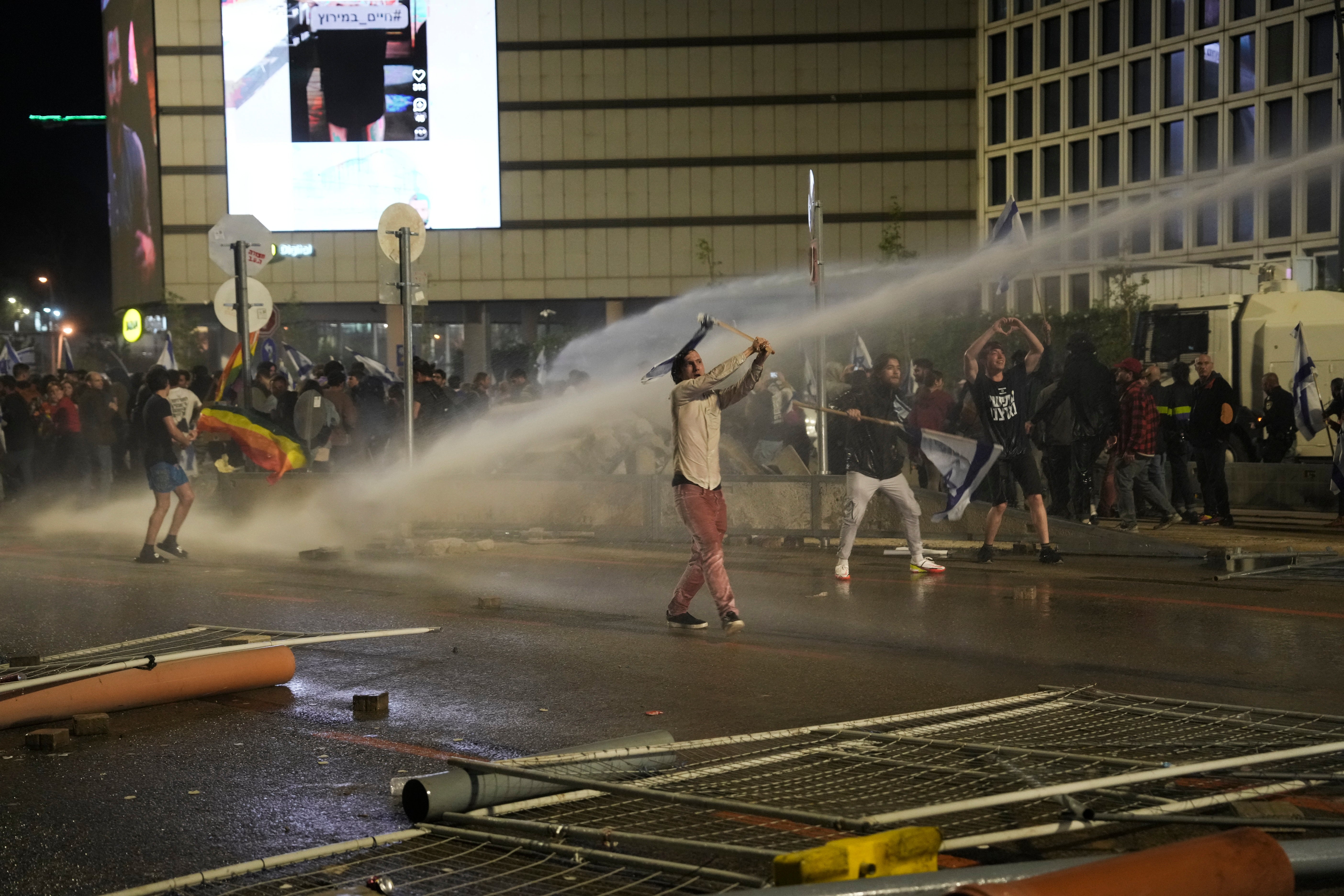
Israel protests: How did we get here?
Netanyahu, who is on trial for corruption in three separate cases, has been at the center of political turmoil that has plagued the country since 2019. After he was indicted, Netanyahu’s former governing partners turned on him, and he was unable to form a stable, lasting coalition. That led to a protracted political crisis that sent Israelis to the polls five times in less than four years.

After an 18-month political exile as opposition leader, Netanyahu returned to power late last year in a coalition with ultra-Orthodox and ultranationalist allies, forming the country’s most right-wing government ever. He denies wrongdoing in the corruption cases.
After taking power, key figures in Netanyahu’s Likud Party along with his governing partners pledged to quickly overhaul the country’s judicial system, which critics say is driven by a desire to push their ideological agendas with less judicial oversight.
Protests set to continue despite delay to judicial overhaul
Some protest leaders say the protests are set to continue in Israel after prime minister Benjamin Netanyahu announced he would delay controversial judicial reforms until next month.
Protests leaders say action will continue because the overhaul vote would only be delayed, not shelved.
“As long as the legislation continues and is not shelved, we will be on the streets,” said Dr. Shikma Bressler, one of the main leaders of the protest movement.
Dr Bressler said Netanyahu and his coalition colleagues are clearly determined to press ahead with their “dictatorship laws” in the next Knesset session, a month from now, Times of Israel reported.
“The statements of the prime minister and his extremist partners are an admission of their intention to bring the dictatorship laws back to the table in the next parliamentary session, harming the economy and the security of the country,” she said.
Subscribe to Independent Premium to bookmark this article
Want to bookmark your favourite articles and stories to read or reference later? Start your Independent Premium subscription today.





Join our commenting forum
Join thought-provoking conversations, follow other Independent readers and see their replies
Comments